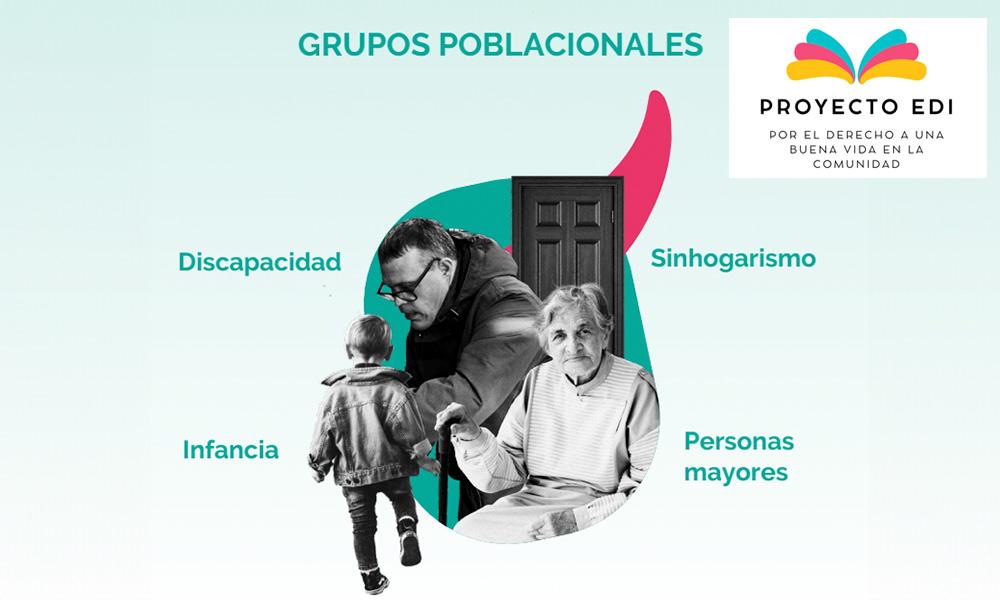A UC3M study points out the changes needed to achieve an inclusive care model based on human rights
3/14/24
In order to achieve a personalised and community-based care model for certain vulnerable population groups (people with disabilities, the elderly, children and adolescents at risk and homeless people), it is necessary to make changes to the current legal, ethical and cultural framework of the current care system from a human rights perspective. In addition, other changes should also be made to professional skills and roles and to the evaluation of the quality of social services. These are some of the main conclusions of a study carried out by the Universidad Carlos III de Madrid (UC3M)'s Gregorio Peces-Barba Human Rights Institute, with the support of the Ministry of Social Rights, Consumption and Agenda 2030, as part of the Ministry's Recovery, Transformation and Resilience Plan.

The “Study on the processes of deinstitutionalisation and transition towards personalised and community support models” (EDI project), as it is called, points out some data on the current situation, such as the fact that there are some 12.3 billion people in Spain at risk of poverty or exclusion, or that between 9.1 and 13.5 percent of the population requires support and care. Or other figures: almost 6.5 million people are potentially dependent; 4.32 million have some kind of disability; almost 35,000 children and adolescents are in foster care; and around 28,000 homeless people have used care centres.
Spain is obliged to urgently address the transition from a care model based on institutionalised settings to a community-based support model, the study argues. To this end, it highlights some key elements, such as considering people in need of care as subjects of rights, considering that the need for support is a consequence of the social structure, access to affordable and accessible housing, developing a network of inclusive community and family-based support, care, foster care and services (ACAIS), and recognising the rights to independent living and inclusion in the community, among others.
“Deinstitutionalisation is a political, social and cultural process, which provides for the transition from care in environments of isolation and segregation, generically identified as institutions, towards modalities of care and support, in line with a rights-based approach, which are person-centred and promote social participation and inclusion in the community,” explain the authors of the study.
This research is part of the EDI project, which aims to help ensure the transition from an institutionalised care model to one based on a human rights framework. To this end, five studies have been carried out, focusing on people with disabilities, the elderly, homeless people, children and adolescents and another with a transversalapproach.
These four population groups “share a situation of vulnerability that manifests itself in terms of structural discrimination based on an ableist, ageist, adult-centred and individualist cultural model”, says the project's lead researcher, Rafael de Asís Roig, a professor in UC3M's International Public Law, Ecclesiastical Law and Philosophy of Law Department.
In carrying out the studies, in which fifty researchers have participated in five working groups, various methodological techniques were applied, such as: analysis of databases, bibliography, cases, regulations and jurisprudence, surveys, in-depth interviews and discussion groups, etc.
The EDI project will continue to work on ensuring that all people in need of care can lead a life of choice in the community. Specifically, throughout 2024, seminars and conferences will be organised to debate and expand on the conclusions reached in the studies and scientific and other outreach publications will be produced.
More information: